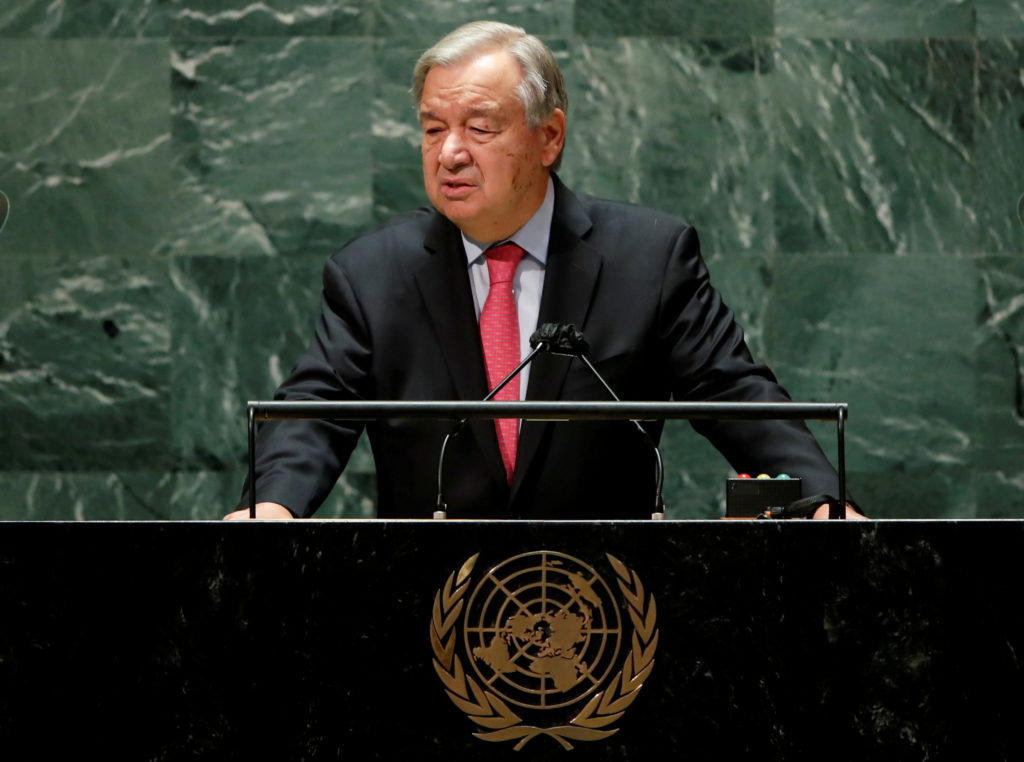BERLIN (AP) — The head of the United Nations says a “leadership gap” is undermining the world’s efforts to curb global warming, days before presidents and prime ministers from around the globe gather for a climate summit in Glasgow.
U.N. Secretary-General Antonio Guterres told reporters Tuesday that time is running out to cut greenhouse gas emissions to meet the goals of the 2015 Paris accord and avert global warming that could damage the planet.
“The clock is ticking,” he said in New York. “The emissions gap is the result of a leadership gap. But leaders can still make this a turning point to a greener future instead of a tipping point to climate catastrophe. ”
Guterres spoke at the launch of a new report by the U.N. Environment Programme that found fresh pledges by governments to cut emissions are raising hopes but aren’t strict enough to keep global warming from exceeding 1.5 degrees Celsius (2.7 degrees Fahrenheit) by the end of the century.
READ MORE: UN says Greenhouse gas levels hit a new record, cuts fall short
The report concluded that recent announcements by dozens of countries to aim for “net-zero” emissions by 2050 could, if fully implemented, limit a global temperature rise to 2.2 degrees Celsius (4 F). That’s closer but still above the less stringent target agreed in Paris climate accord of capping global warming at 2 degrees Celsius (3.6 F) compared to pre-industrial times.
The United States, the European Union and dozens of other countries have set net-zero emissions targets. However, the Environment Programme report said the net-zero goals that many governments announced ahead of a U.N. climate summit in Glasgow next week remain vague, with much of the heavy lifting on emissions cuts pushed beyond 2030.
READ MORE: World set to miss goal of $100 billion climate aid pledged to poor
Guterres said scientists were clear on the facts of climate change, adding that “now leaders need to be just as clear in their actions.”
“They need to come to Glasgow with bold, time-bound, front-loaded plans to reach net zero,” he said.
The report is one of several recent studies to examine the gap between what countries have pledged to do to cut emissions of planet-heating gases and what scientists say is required to meet the Paris goals.
Leaders, diplomats, scientists and environmental campaigners will meet in Glasgow from Oct. 31-Nov. 12 to discuss how countries and businesses can adjust their targets to avert the more extreme climate change scenarios that would result in a significant sea-level rise, more frequent wild weather and more droughts.













































